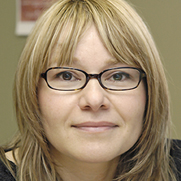 Sirma Bilge is a full professor in the sociology department at the University of Montreal.
Sirma Bilge is a full professor in the sociology department at the University of Montreal.
She teaches courses on gender and sexualities, ethnic relations, postcolonial/decolonial theories, intersectionality. Her research focuses on intersectionality, socialization, and neoliberal governmentality. She supervised 17 postgraduate students and 5 PDFs. She will participate in the development and implementation of SWITCH’s.
 María-Gracia Girardi is Polytechnique Montréal’s first Equity, Diversity and Inclusion Advisor.
María-Gracia Girardi is Polytechnique Montréal’s first Equity, Diversity and Inclusion Advisor.
She is responsible for the implementation of Polytechnique Montréal’s EDI strategy, providing guidance, support and thought leadership to promote a culture of equity, accessibility and inclusiveness across campus. Her previous work experience in the nonprofit sector spans across five different countries in three continents. María-Gracia received her Master’s degree in Interdisciplinary Gender Studies from Universidad Autónoma de Madrid. Her published thesis explored the impact of gender quotas in parliaments around the world. She received her Bachelor’s degree with Honours from McGill University in Latin American & Caribbean Studies, with a minor in International Development.
 Renée-Pascale Laberge holds a master's degree and a doctorate in human communication and is a member of the International Coach Federation (ICF) as a certified PCC coach, in integral development. She is a Teacher and coordinates the Personal and Relational Skills Unit, made up of a team of 10 lecturers, since 2006 at Polytechnique Montreal. She also worked as head of baccalaureate courses at the Center for Complementary Studies from 2007 to 2019.
Renée-Pascale Laberge holds a master's degree and a doctorate in human communication and is a member of the International Coach Federation (ICF) as a certified PCC coach, in integral development. She is a Teacher and coordinates the Personal and Relational Skills Unit, made up of a team of 10 lecturers, since 2006 at Polytechnique Montreal. She also worked as head of baccalaureate courses at the Center for Complementary Studies from 2007 to 2019.
She has 20 years of experience in university teaching and uses innovative pedagogical approaches, such as experiential and change-oriented learning. She is a key collaborator in the design and implementation of ExCL's activities, the foundation of which derives from her postgraduate course on Teamwork and Interdisciplinarity.
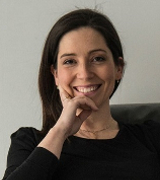 Sophie Morin is lecturer at Polytechnique Montreal
Sophie Morin is lecturer at Polytechnique Montreal
Since obtaining her degree in Industrial Engineering at Polytechnique Montreal, Sophie Morin has worked in the fields of industrial engineering and education. First as a logistics consultant and then as a project manager for events, she then taught science at high school level. Sophie received her PhD in Cognitive Ergonomics in 2016; her thesis focuses on the development of a robust theoretical model that allows future engineers to develop their creativity. For the past 7 years, as a lecturer at Polytechnique Montreal, she has been offering the creativity course she created and experimented with for her doctoral thesis. Sophie has worked for the Chair Innovation in Active Learning Pedagogical Means for Engineering (ImpactG) at Polytechnique Montreal and has participated in the Summer School in Educational Sciences (andragogy) at the University of Sherbrooke. For the past 3 years, she has been working in partnership with a private college to support teachers in the development of their creativity and that of their students. Sophie has also completed postdoctoral studies at HEC Montréal in collaboration with the Leadership Chair. Finally, she teaches ballet and creation in a dance-studies program.
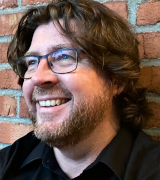 François Rivest is a pedagogical advisor at the Office of Support and Pedagogical Innovation at Polytechnique Montréal.
François Rivest is a pedagogical advisor at the Office of Support and Pedagogical Innovation at Polytechnique Montréal.
He holds a Master's degree in Education from the Université de Montréal, a DESS in Communication Studies and a Bachelor's degree in History Education from the Université du Québec à Montréal. For the past twenty years, he has dedicated himself to supporting teachers in the development and refinement of teaching and learning assessment practices. His professional interests include congruence between personal values and teaching approaches; concept maps for developing shared understanding within a group of teachers or students; and cognitive processes. François is a member of the Regroupement francophone pour l'enseignement et l'apprentissage du génie (ReFEAG), the Association québécoise du codéveloppement professionnel (AQCP) and a guest member of LIRES (Laboratoire interdisciplinaire de recherche sur l'enseignement supérieur).
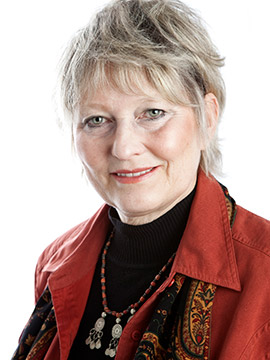 Louise Vandelac is a full professor in the sociology department at UQAM, in Montreal.
Louise Vandelac is a full professor in the sociology department at UQAM, in Montreal.
Its interdisciplinary and intersectoral research is at the crossroads of human, social, and natural sciences and covers health, environment, techno-sciences, agrifood, and public policies. A researcher at CINBIOSE and director of CREPPA (Collective for Ecohealth Research on Pesticides, Policies, and Alternatives), she has supervised more than 70 postgraduate students. She will participate in the development and implementation of SWITCHs.
Marine Agogué. HEC Montréal. Département de Management.
Geneviève Ali. McGill University. Department of Earth and Planetary Sciences and the Department of Geography.
Patrice Aubertin. École Nationale de Cirque. Chaire industrielle du CRSH en arts du cirque.
Onita Basu. Carleton University. Civil and Environmental Engineering.
Mickaël Begon. Université de Montréal. Kinésiologie.
Françoise Bichai. Polytechnique de Montréal. Génies Civil, géologique et des mines.
Tanya Chichekian. Université de Sherbrooke. Faculté d'éducation.
Nathalie Côté. Université de Sherbrooke. Centre universitaire d'enrichissement de la formation à la recherche.
Kazem Fayazbakhsh. Ryerson University. Aerospace Engineering.
Nathaly Gaudreault. Université de Sherbrooke. École de Réadaptation.
Marta Kersten-Oertel. Concordia University. Computer Science and Software Engineering.
Lucie Ménard. Université de Québec à Montréal. Linguistique.
Guilhem Michon. Institut Supérieur de l'Aéronautique et de l'Espace. Institut Clement Ader - CNRS.
Clarice Nishio. Université de Montréal. Faculté de Médecine dentaire.
Daniel Oliva. École de technologie supérieure. Décanat des études supérieures et recherche.
Maria Orjuela-Laverde. McGill University. Faculty of Engineering Pedagogical Coordinator.
Doina Precup. McGill University. Electrical and Computer Engineering.
Gary Scavone. McGill University. Schulich School of Music.
Minea Valle-Fajer. Polytechnique de Montréal. Coordonnatrice - bureau de développement des compétences aux études supérieures.
Ingrid Verduyckt. Université de Montréal. École d'Orthophonie/audiologie.
Shawn Wettig. Waterloo University. Associate Deans of Graduate Studies; Graduate Studies and Research.
Jean-Paul Lemarquis, “training and development strategies” project manager at Bombardier Transportation, is directly involved in the design and deployment of quality improvement and problem-solving programs at Bombardier.
Florent Salako, Dassault Systèmes' graduate program manager for North America, is an expert in training, coaching and maintaining relationships with academic and research institutions.
Dominique Sauvé, Acting Director, Institute for Mobility and Aerospace Canada (IMACA), a pan-Canadian non-profit organization focused on work experience and personalized training for current and future workers in Canadian mobility industries.
Yasemin Tanaçan-Blacklock is the Advisor, Equity and Belonging at Engineers Canada, where she works on culture change and anti-oppression in the engineering profession. She has experience in anti-oppressive education, political advocacy, intersectional feminist international defence and security, and LGBTQIA+ healthcare.
Pierre-Jean (him/he) is a chemist in training. He debuts as Research Administrator when he joins the Chemical Engineering Department of Polytechnique Montreal in 2008, as Development Officer for CREPEC, a Strategic Cluster focused on Polymers & Composites. In 2011, he joins Polytechnique's Grant Office (BRCDT) as Administration of Research Officer. There, he contributes to the strategic positioning of professors' initiatives and facilitates the writing of targeted grants. In 2013, he is responsible for the NSERC-CREATE program, which he managed successfully. Since the end of 2018, he is Knowledge Mobilization and Community engagement Officer. The Canadian Association of Research Administrators awarded him the 2020 Spirit of Kindness award.
Lucie Jean: Working for over 20 years in a university environment at Polytechnique Montréal, she worked for more than 16 years as a coordinator of research projects in the field of environmental engineering, life cycle analysis and sustainable development within the Center. international reference on the life cycle of products, processes and services (CIRAIG) and the Interdisciplinary Research Center in Operationalization of Sustainable Development (CIRODD). Lucie coordinated several grant applications, including that of CIRODD, a strategic grouping program of the FRQNT. Recently, she joined the team of the Office of Research and Technological Development Center (BRCDT) as a research administration advisor. She supports and advises professors in the preparation of inter-institutional funding requests and in the post-award follow-up of research grants. Lucie is also a designated representative for Polytechnique and coordinates the assessment and follow-up of files relating to controlled goods.
Key academic collaborators
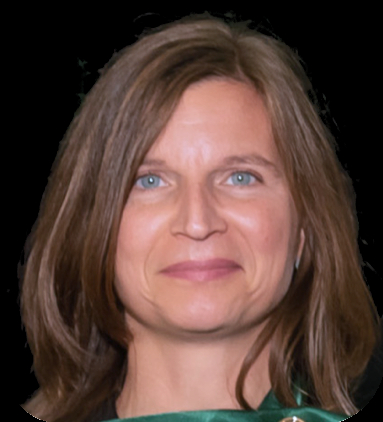 Judith Cantin, PhD in higher education and expert in case study discussions, is an active member of Polytechnique’s educational support and innovation office. She has 20 years of experience as an educational consultant. She will participate in the design of the case studies and join the expert-instructors to assist students in the problem-solving process and in their self-assessment of power skills. Judith Cantin, PhD in higher education and expert in case study discussions, is an active member of Polytechnique’s educational support and innovation office. She has 20 years of experience as an educational consultant. She will participate in the design of the case studies and join the expert-instructors to assist students in the problem-solving process and in their self-assessment of power skills. |
|
Her research focuses on collaborative processes and collaborative practice (interprofessional and family) in hybrid mode and on the digital in learning and teaching context. Between 2002 and 2020 she worked as an elementary school teacher and educational consultant in the school sector and also worked as a techno-pedagogue in collaborative patient-partnered health science courses. She is also a researcher associated with the Periscope Network. |
Industrial collaborators
Cassandra Polyzou is the Manager of Diversity, Equity and Inclusion at Engineers Canada. She works on strategies and partnerships that promote the recruitment, retention, and professional development of women in engineering, and support increased Indigenous Peoples’ participation in engineering. Cassandra has a Master of Arts in Cultural Analysis and Social Theory from Wilfrid Laurier University and a Bachelor of Environment and Resource Studies from the University of Waterloo. She has over a fifteen years of experience in community engagement and project management on a variety of social justice, and diversity, equity and inclusion areas.


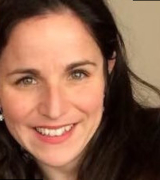 Audrey Raynault is an educational consultant at the Office of Support and Pedagogical Innovation at Polytechnique Montréal.
Audrey Raynault is an educational consultant at the Office of Support and Pedagogical Innovation at Polytechnique Montréal.